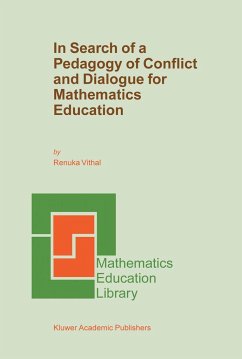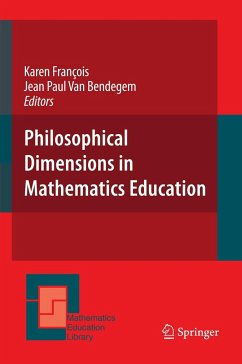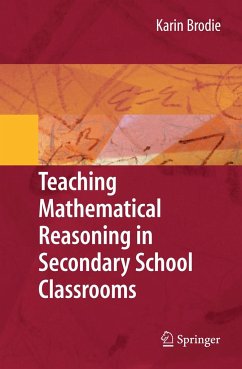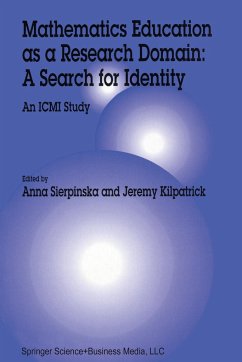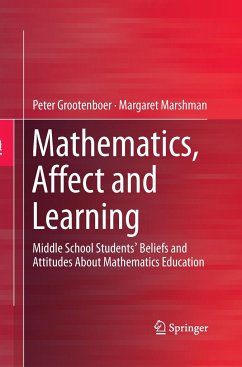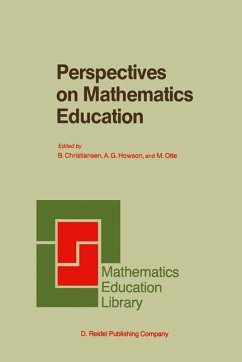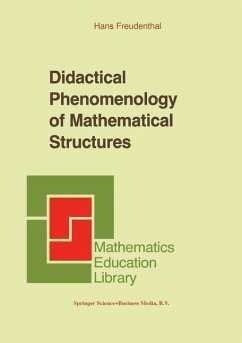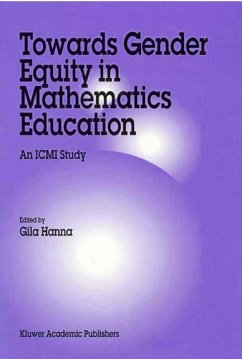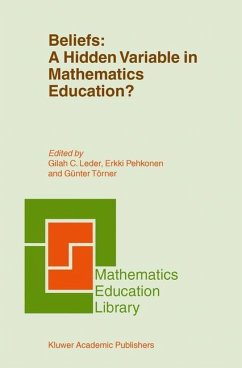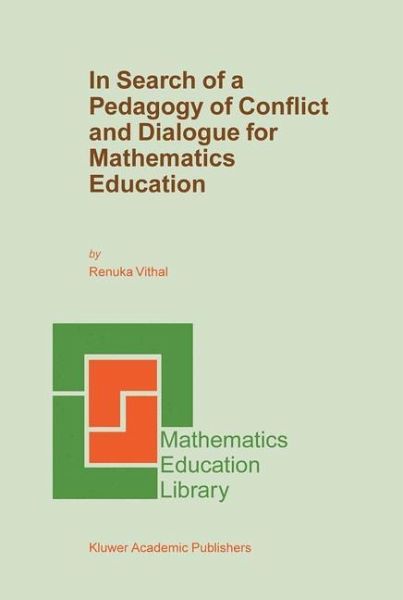
In Search of a Pedagogy of Conflict and Dialogue for Mathematics Education
Versandkostenfrei!
Versandfertig in 1-2 Wochen
77,99 €
inkl. MwSt.
Weitere Ausgaben:

PAYBACK Punkte
39 °P sammeln!
In Search of a Pedagogy for Conflict and Dialogue for Mathematics Education is of interest to mathematics educators, researchers in mathematics education, gender, social justice, equity and democracy in education; and practitioners/teachers interested in the use of project work in mathematics teaching and learning.This book brings together diverse recent developments exploring social, cultural political dimensions in mathematics education. It builds theoretical ideas from a careful substantial description of practice, in the attempt to improve both theory and practice in mathematics education....
In Search of a Pedagogy for Conflict and Dialogue for Mathematics Education is of interest to mathematics educators, researchers in mathematics education, gender, social justice, equity and democracy in education; and practitioners/teachers interested in the use of project work in mathematics teaching and learning.
This book brings together diverse recent developments exploring social, cultural political dimensions in mathematics education. It builds theoretical ideas from a careful substantial description of practice, in the attempt to improve both theory and practice in mathematics education. In doing so it interrogates and develops theoretical research tools for mathematics education and simultaneously provides ideas for practice in mathematics classrooms.
This book brings together diverse recent developments exploring social, cultural political dimensions in mathematics education. It builds theoretical ideas from a careful substantial description of practice, in the attempt to improve both theory and practice in mathematics education. In doing so it interrogates and develops theoretical research tools for mathematics education and simultaneously provides ideas for practice in mathematics classrooms.





